I live with chronic tinnitus.
Until recently, I had shared with only one person—my spouse—what it’s like living with this condition. But I’ve decided it’s time to speak more publicly in order to advocate for tinnitus awareness, research, support and, ultimately, a cure.
It’s taken me more than a decade to come to this decision.
If you’re a follower of Living Proof Advocacy, you may appreciate the irony of this. I certainly do.
For more than 20 years, my friend and colleague Tim Cage and I have helped thousands of individuals advocate for causes they care about by tapping the power of their personal stories. We wrote a book about it, and we founded Living Proof Advocacy to support organizations and their advocates who want to share personal stories with impact.
So why hadn’t I explored my experience for its potential to make a difference in the lives of others?
I’ll get to that shortly.
First, here’s my story.
Out of the blue
One sunny fall morning more than a dozen years ago, I woke and rose to get out of bed. Immediately, the room began spinning. I keeled to the right and collapsed onto the carpet as if pulled by a magnet. I closed my eyes, crawled to the bathroom and threw up.
“I couldn’t focus; my eyes rolled in their sockets, and my brain felt loose in my skull.”
Lying on the cold tile floor, I couldn’t focus; my eyes rolled in their sockets, and my brain felt loose in my skull. I had intense vertigo and no idea why.
Then, out of nowhere, came a high-pitched tone. Electrical, vibrating. A single, sustained eeeeeeeeeeeeeeeeeeeeee in my right ear or, strangely, somewhere behind it.
For the past 12 years, that screech hasn’t stopped. Not for a single moment.
It’s there while I’m driving, watching movies and talking to clients. It’s there when I kiss my spouse. It’s there when I close my eyes to sleep and if I open them in the middle of the night.
This condition—the perception of sound when no actual external noise is present—is called tinnitus. Some pronounce it TIN-it-us, others Tin-NIGHT-us; most people call it “ringing in the ears.” But that label, for me and millions of others, doesn’t begin to capture what living with an ever-present phantom sound is like.
Living with a constant internal noise significantly impacts the quality of life for millions of Americans. And yet, we tinnitus sufferers rarely talk about those impacts. As a result, tinnitus is often dismissed as a common minor ailment.
So let me share a bit of what the impact has been for me these past 12+ years, and what we all can do to help provide relief to the more than 1 in 10 Americans impacted by tinnitus. Chances are that many of you have had experiences like mine, or know someone who has.
Living with tinnitus
In the years leading up to that fall morning, I had gradually lost my ability to hear high-pitched sounds: birds, crickets, alarms. Tinnitus is frequently accompanied by hearing loss. But it isn’t an ear problem at all. It’s a brain problem.
On that morning, my brain apparently decided I needed to hear those high pitches after all, so it compensated by turning on the screech, which originates in my brain’s right hemisphere and vibrates throughout my cerebrum and into my ears. It’s as though half my head is a noisy electrical power plant that the other half must listen to, 24/7.
“Among veterans, tinnitus is the number one service-related disability. ”
Many of the 50 million Americans experiencing some form of tinnitus do not find it troubling at all and/or may experience it only briefly. But for roughly 20 million, me included, the condition is chronic and burdensome. For about 2 million, it’s debilitating—resulting in insomnia, severe depression and anxiety, isolation and even suicidal thoughts. Among veterans, tinnitus is the number one service-related disability.
I’ve experienced some of the more common burdens: bouts of sleeplessness, depression, irritability and intense, even painful, reactions to everyday sounds. The clink of dropped silverware, a swell of violins, or the backup beep of a garbage truck can cause me to clap my hands over my ears, the sounds instantly making my internal screech piercingly loud.
Though the screech I hear is constant—and I am among the 20 million who’ve sought medical guidance, without success— it doesn’t prevent me from working or living a full life. I’m able to ignore it much of the time. Occasionally wearing hearing aids helps as they amplify external sounds that distract me from the screech; getting adequate sleep and managing stress also helps reduce the sound’s intensity.
This does not mean that I or other chronic tinnitus sufferers are able to “turn it off.” The instant I think about the eeeeeeeeeeeeeeeeeeeeee, it’s there, sometimes dialed back in volume and sometimes—like right now, because I’m focusing on it to describe it—it’s blaring.
Fortunately, my tinnitus is not debilitating. But listening to it nonstop for more than a decade, even in the background of my consciousness, is exhausting. Like millions of others, I want the noise to stop.
Choosing to speak out
As I said at the start of this post, it’s somewhat ironic that it has taken me 12 years to step into this advocacy role—especially given what I know about the power of personal stories to create change.
So why hadn’t I explored my experience of tinnitus for its potential to make a difference in the lives of others?
As every advocate Tim and I work with knows well, there’s a lot going on—emotionally, psychologically, even physically—when you step across the threshold from the private to the public. Whether people are sharing their lived experiences to advocate for the arts, the environment, dismantling racism, or curing a rare or not-so-rare health condition, stepping across that threshold is a significant and highly personal act. And while I, too, knew this well, as I prepared to share my experience more widely, I nonetheless encountered some of the same bumps and a-has the advocates we work with do (including getting caught in “The Story Game.”).
I will explore this further in a later blog post.
But as it relates to talking about tinnitus, I am not alone in my initial hesitancy to speak out.
Those of us with tinnitus and other so-called “invisible” illnesses—such as arthritis, heart conditions, depression, mental illness, intestinal disorders and many other conditions—often feel uncomfortable speaking about them because of the disconnect between how we look on the outside and what may be going on inside.
A recent survey of tinnitus patients revealed that the majority of us do not freely share how tinnitus impacts our lives, not even with the people closest to us.[1] Reasons include:
not wanting to burden others
fear that people may not see tinnitus as a life-impacting condition or instead think that it’s all in our heads (actually, it is—in our brains)
not wanting to go through what I am at this moment: bringing the screech to the forefront of consciousness by discussing it
I’ve had these same thoughts myself—and they contributed to me not speaking up. In fact, when I shared early drafts of this post with three friends I’ve known for decades, I realized how rarely I spoke about my tinnitus. Their responses in all three instances were “John, I had no idea.” In one case, the friend I’d known the longest told me that she, too, had constant “ringing in the ears”—though she assumed “everyone did, to some extent.” As she read my draft, her own tinnitus began blaring. As long as we’ve known each other, we’ve never shared these experiences.
“The fact that we rarely talk about the impact of tinnitus on our everyday lives contributes to the condition being dismissed as a common minor ailment.”
The fact that we rarely talk about the impact of tinnitus on our everyday lives contributes to the condition being dismissed as a common minor ailment. And that results in research into finding a cure—and the funding for it—lagging far behind that into other illnesses and conditions.
This is precisely why we need to share our stories. Personal stories from lived experience have the power to move others from apathy to empathy to action. We can create real change by working together to raise awareness. Not simply raising awareness that tinnitus exists—most everyone knows about “ringing in the ears”—but by raising awareness of how severely it impacts the quality of life for millions.
“Raising awareness” may sound like a small step toward finding a cure, but if Tim and I have learned anything through our work with thousands of advocates and hundreds of advocacy organizations, it’s this: never underestimate the power of empathy to spark action.
So:
If you, too, are living with tinnitus: Consider whether you might talk more openly about the impact it has on your life, especially if you experience chronic tinnitus. Educate yourself about the condition and reach out for support and care. The American Tinnitus Association’s website (ata.org) is a great place to start. Become an advocate—starting with the people closest to you. We need to move our stories from the privacy of support groups into everyday public discourse. (And I know just the book you can turn to for guidance in sharing your stories!)
If your tinnitus is not chronic, and you have experienced it temporarily or are not bothered by it, become an ally for others. Be sensitive to those who have chronic, troubling tinnitus. Rather than noting “I had tinnitus once, too” or “I have it, too, but it doesn’t bother me,” offer support by letting them know you understand what they’re struggling with. Help them convey to others how tinnitus impacts lives.
If you don’t have tinnitus, you probably know someone who does, so recognize that they may be experiencing much more than they let on: emotionally, psychologically and physically. If they’re open to talking about their tinnitus—and if it’s not painful for them to do so—ask what it’s like and offer support. Let them know that you know that it’s not in their head. Share with others what you know and what you learn from those with tinnitus.
Finally: point people to ata.org for information, resources and the opportunity to impact research and shorten the path to a cure by contributing.
ABOUT ATA: Since 1971, the American Tinnitus Association has been a global leader in the effort to find a cure for tinnitus. ATA brings together patients, researchers, healthcare professionals, industry partners and lawmakers to advance public understanding of tinnitus and fund vital tinnitus research.
Thanks to friends, colleagues and staff of the ATA for reviewing early drafts of this post. I’ll thank you further in the next post!



